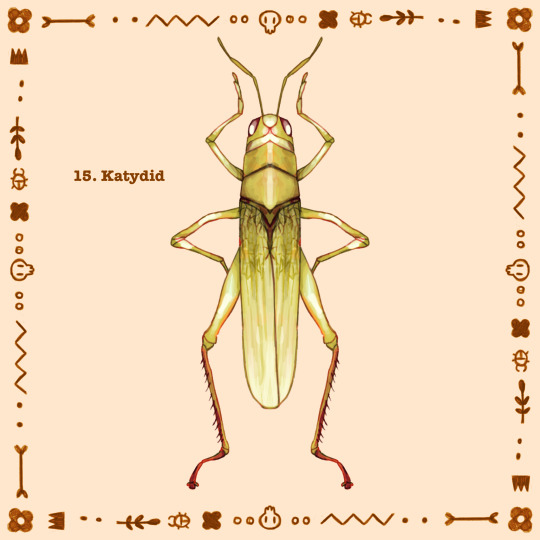#Acherontia
Explore tagged Tumblr posts
Photo


Death’s head hawkmoth, Acherontia atropos, Sphingidae
Photographed by Matthieu Berroneau
Shared with permission; do not remove credit or re-post!
#animals#curators on tumblr#insects#bugs#moth#sphinx moth#sphingidae#deaths head moth#deaths head hawkmoth#Acherontia#acherontia atropos#one nice bug
5K notes
·
View notes
Text

Greater Death's-head Hawk Moths (Acherontia lachesis), family Sphingidae, Sumatra, Indonesia
In the far SE part of this species' range, they are much more yellowish.
photograph by Derry
#death's head hawk moth#hawk moth#moth#acherontia#sphingidae#lepidoptera#insect#entomology#asia#animals#nature
500 notes
·
View notes
Text



animal: death's-head hawkmoth
(acherontia)
#randomcreatureposting#animals#animal#animal posting#insect#insects#moth#moths#moth posting#acherontia#deaths head hawk moth#deaths head moth
298 notes
·
View notes
Text

An African death's-head hawk moth (Acherontia atropos)
by Peter Schmidt
#african deaths-head hawk moth#deaths head hawk moth#deaths head moth#hawk moths#butterflies and moths#acherontia atropos#acherontia#sphingidae#lepidoptera#insecta#arthropoda#wildlife: misc
288 notes
·
View notes
Text






Acherontia atropos
131 notes
·
View notes
Text

Death's-head hawkmoth outside my house 🦋
#grunge#acherontia#moth#butterfly#horror#photography#dark#insects#animals#dark aesthetic#death head hawk moth#death head moth
187 notes
·
View notes
Text

𝔇𝔢𝔞𝔱𝔥’𝔰-𝔥𝔢𝔞𝔡 𝔥𝔞𝔴𝔨𝔪𝔬𝔱𝔥
#Death's-head hawkmoth#insects#Acherontia#death hawk moth#species#Skull#skull-like mark#skull-shaped#Death's-head#Acherontia atropos
75 notes
·
View notes
Text




Bugtober days 13, 14, 15 and extra 16
Spirit Moth, Katydid (it's a grasshopper), Firefly and Acherontia Moth
Final bugtober post! I'll try to get these posts up to date with my other ssmm content
#bugtober#bugs#insects#my art#spirit moth#katydid#grasshopper#firefly#acherontia#death moth#digital art#illustration
30 notes
·
View notes
Text


Death's Head Hawkmoth
Acherontia Atropos; Acherontia Lachesis; Acherontia Styx
#moths#death's head hawkmoth#acherontia#acherontia atropos#acherontia lachesis#acherontia styx#nature's beauty
13 notes
·
View notes
Text
MOTH BLAST





#ive had them for about a week now#both have been fed. i am soooooo very glad i finally learned how to feed them. it was really tricky at first#also yes. they do squeak. however whenever i get out my phone and try to record they stop. its literally impossible to catch it?????#i will try though we will see#deaths head hawkmoth#deaths head hawk moth#acherontia atropos#lepidoptera#moths#moth#bugs#insects#myguyzz#bug pics#bugblr
3K notes
·
View notes
Note
Thanks for posting about the Incas, never knew that they were their own Genus. If you don't mind me bothering you again with a request, is it possible to see some pictures, if you have them, of death head's hawkmoths? They are my favorite species, and I am currently writing a murder-mystery where one is a significant plot-point, so I want to describe it as accurately as possible. Thanks.
Death's head moths:


Greater Death's-head Moth (Acherontia lachesis), family Sphingidae, found in India, SE, and East Asia
photographs by Mosmas & Balakrishnan Valappil
151 notes
·
View notes
Text

#moth#lepidoptera#sphingidae#sphinx moths#hawk moths#death's-head hawkmoth#acherontia#acherontia atropos#october#mspaint
1 note
·
View note
Text

284 notes
·
View notes
Text


death's head hawkmoths (acherontia atropos) | stonedaffection on ig
#stim#moths#bugs#insects#sfw#black#brown#white#death's head hawkmoth#acherontia atropos#animals#wings#hands#ishy gifs#postish
701 notes
·
View notes
Text
Omg look at this African Death’s-head Hawkmoth, or Acherontia atropos ! ! !
It is so freaking gorgeous !

I have been hyperfixating on moths and butterflies again. I might make an info-post on this species !
26 notes
·
View notes
Text

Acherontia Atropos pupa pendant
#themountainsmoke#antler jewelry#witchy#dark#dark aesthetic#acherontia atropos#pupa#moth#entomology#hand carved jewelry
13 notes
·
View notes